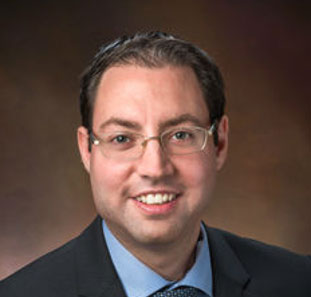
Consultant Paediatric Urologist, Evelina London Children’s Hospital, UK Honorary Senior lecturer King’s College London, UK

Suggested by the Board Assistant Professor, Division of Pediatric Urology, Department of Surgery The Children’s Hospital of Philadelphia Perelman School of Medicine at the University of Pennsylvania

Professor of Pediatric Urology at Wake Forest University Medical School
President, International Children’s Continence Society
Associate Professor of pediatrics, Consultant in Pediatric Nephrology
It is with a heavy heart that I report the passing of Dr. Yves L. Homsy on June 11, 2023. Dr. Homsy touched many lives around the globe and was a mentor, teacher, and friend to a multitude of people. Yves was born in Alexandria, Egypt and obtained his medical degree from Cairo University. He […]
Dear ICCS Members,ICCS is a Society that unites us by dedicating itself to a cause that impacts children’s lives: incontinence and all its symptoms and conditions. Lower urinary tract symptoms affect 10 to 20% of children and are, therefore, an important reason for children to visit the pediatrician, urologist, and pediatric nephrologist’s office. The multifactorial […]
Neurodevelopmental disorders and incontinence in children and adolescents: Attention-deficit/hyperactivity disorder, autism spectrum disorder, and intellectual disability – A consensus document of the International Children’s Continence Society is among the most downloaded papers in Neurourology and Urodynamics. The ICCS position document was written by Alexander von Gontard, Justine Hussong, Stephen S. Yang, Janet Chase, Israel Franco, and Anne […]
What’s new about urotherapy? Written by Anka Nieuwhof-Leppink, Jens Larsson, Gundela Holmdahl, and Anju Goyal, Urotherapy Book: a case-based approach has been conceived to help in the diffusion of the knowledge and practice of urotherapy and the understanding of the functional mechanisms of lower urinary tract dysfunctions. Despite being the first-line treatment for functional bladder […]
Dear ICCS members, We are excited to welcome you to the joint ICCS, Societies of Pediatric Urology (SPU), and Pediatric Urologic Nurses and Specialists (PUNS) Annual Congress in Louisville, Kentucky, USA from September 12th (Wednesday) to September 14th (Saturday). The program for the congress will soon be posted on our website and the SPU Fall Congress website […]
25th July, 2024Konstantinos Kamperis – ModeratorAnne Wright – Speaker
Urotherapy & Urodynamics Course 4 & 5 April Urotherapy & Urodynamics Course 4 & 5 April The Urotherapy Department of the Wilhelmina Children’s Hospital (UMCU) is proud to present its annual course on urotherapy and urodynamics. This event is organised in cooperation with the International Children’s Continence Society (ICCS) and the Dutch Association for Continence […]
Meet experts in regions of the world that are not represented within the board

Suggestions or comments should be addressed to the General Secretary.